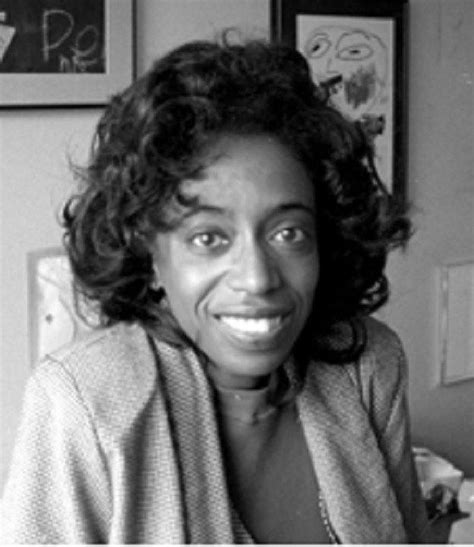Ein Zitat von John Cheever
Die Aufgabe eines amerikanischen Schriftstellers besteht nicht darin, die Ängste einer Frau beim Ehebruch zu beschreiben, die aus einem Fenster in den Regen blickt, sondern darin, vierhundert Menschen zu beschreiben, die unter den Lichtern nach einem faulen Ball greifen. Das ist Zeremonie.
Verwandte Zitate
Andererseits sah sie nie so groß aus wie in diesem Moment. "Was?" verlangte Rose und blickte ihn böse an. Das Warnsignal blinkte leuchtend rot in Kanes Kopf. Einer Frau zu sagen, sie sei so groß wie ein Wasserball, würde keine Punkte bringen. Wie konnte man ihr Aussehen beschreiben? Ein Basketball? Volleyball? Er betrachtete ihr wütendes kleines Gesicht. Ja. Er steckte in großen Schwierigkeiten, egal was er sagte. Eine Beschreibung kam nicht in Frage. Er brauchte Diplomatie, etwas, das aus dem Fenster flog, wenn er in ihrer Nähe war und sie die Worte wie Kontraktionen aussprach.
Der Beiname „schön“ wird von Chirurgen verwendet, um Operationen zu beschreiben, die ihre Patienten als grässlich beschreiben, von Physikern, um Messmethoden zu beschreiben, die Sentimentalisten kalt lassen, von Anwälten, um Fälle zu beschreiben, die alle Beteiligten ruinieren, und von Liebhabern, um die Objekte zu beschreiben, die sie haben ihre Verliebtheit, so unattraktiv sie für den unbeteiligten Betrachter auch erscheinen mag.
Wenn wir gebeten werden, zu beschreiben, was „postrassisch“ bedeutet, ist das ein bisschen so, als würde man gebeten, einen Kobold, eine Kaltfusion oder Einhörner zu beschreiben: Wir wissen, was gemeint ist, aber wenn wir ehrlich sein wollen, wissen wir auch, dass nichts davon gemeint ist vier beschreiben etwas Reales, etwas Greifbares, etwas Wahres.
Was in der Malerei die Karikatur ist, ist in der Schrift die Burleske; und auf die gleiche Weise korrelieren der Komiker und der Maler miteinander; Wie im ersteren scheint der Maler im Vorteil zu sein, so steht er im letzteren unendlich auf der Seite des Schriftstellers. Denn das Ungeheuerliche ist viel leichter zu malen als zu beschreiben, und das Lächerliche zu beschreiben als zu malen.
Wenn ich meine Medizinstudenten bitte, ihr Bild einer Frau zu beschreiben, die sich für eine Geburt bei einer Hebamme statt bei einem Geburtshelfer entscheidet, beschreiben sie im Allgemeinen eine Frau, die lange Baumwollröcke trägt, ihre Haare zu Zöpfen flechtet, nur vegane Bio-Lebensmittel isst, Yoga macht, und fährt vielleicht einen VW-Kleinbus.
Wenn man sich das Schreiben der meisten Frauen ansieht, werden Schriftstellerinnen Frauen anders beschreiben als männliche Schriftsteller Frauen. Die Details, die in die Beschreibung einer weiblichen Figur durch eine Autorin einfließen, sind vielleicht etwas wertender. Sie suchen nach bestimmten Dingen, weil sie wissen, was Frauen tun, um auf eine bestimmte Art und Weise auszusehen.
Ich würde mich nicht als politischen Schriftsteller bezeichnen, außer in dem Sinne, dass das Persönliche politisch ist, woran ich fest glaube. Und in diesem Sinne ist „American Gods“ ein sehr persönlicher Roman und ein politischer Roman. Ich habe versucht, die Erfahrung zu beschreiben, als Einwanderer nach Amerika zu kommen, die Erfahrung, zu beobachten, wie Amerika dazu neigt, andere Kulturen zu essen.
Liebesspiel zu beschreiben ist unmoralisch und unbescheiden; Du weißt, dass es so ist. Es so zu beschreiben, wie es wirklich ist, oder wie es Ihnen und mir als Zuschauern erscheinen würde, wäre, die trostloseste Farce zu beschreiben, das tautologischste Geschwätz aufzuzeichnen. Seufzer, Händedrücken, Blicke auf den Mond usw. zur Kenntnis zu nehmen – wird dieses Geschäft zu unserer Würde als Historiker? Geh weg von diesen dummen jungen Leuten – sie wollen uns nicht; So trostlos ihre Farce auch ist und wie tautologisch ihr Geschwätz auch ist, Sie können sicher sein, dass es sie amüsiert und dass sie auch ohne uns glücklich genug sind.







































